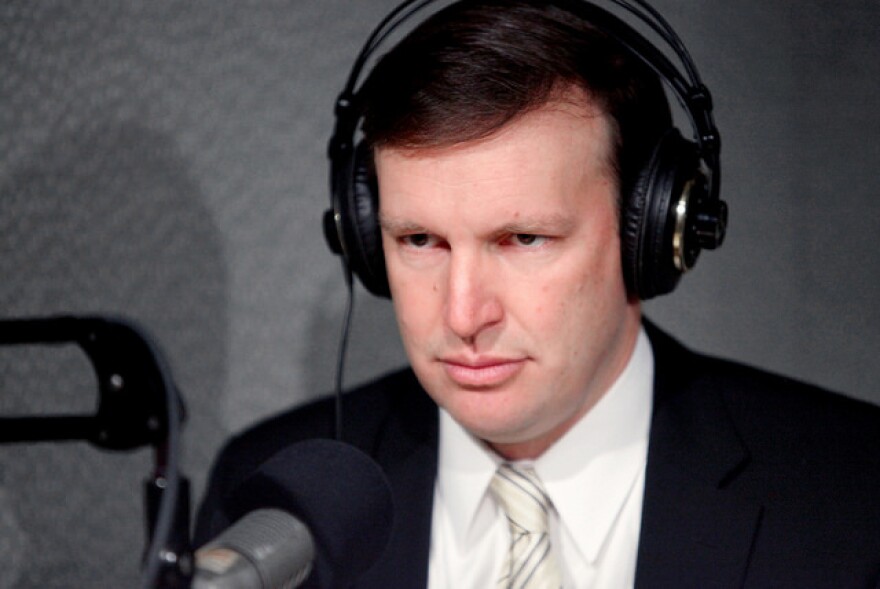"This resolution strikes the necessary balance by giving us the flexibility we need for unforeseen circumstances."
President Barack Obama
President Barack Obama is asking Congress to formally authorize war against Islamic State militants.
The request is limited to three years, with no restriction as to where U.S. forces could pursue the threat.
Obama's proposal bans "enduring offensive combat operations," an ambiguous term intended as compromise between lawmakers who want authority for ground troops and those who don't. In a statement delivered Wednesday, Obama said his request "does not call for the deployment of U.S. ground forces to Iraq or Syria." He said local forces are in the best position to fight a ground war.
Connecticut Senator Chris Murphy is one of those opponents to ground forces.
"We’ve got to be smart about this fight," he said. "A smart strategy recognizes that combat troops, in the end, are just going to become bulletin board material for terrorists to bring even more forces to the fight in the Middle East, and across the globe."

Speaking on CNN, Murphy said he’s concerned about the timetable, and wants assurance that ground troops will not be used during the next presidential administration.
"The problem is that this authorization goes for three years, not a year-and-a-half," Murphy said. "So it will extend a year-and-a-half, at least, into the next president’s term. A lot of my Republican colleagues here made it pretty clear that they want to put boots on the ground."
"Congress needs to assure that we learn from the mistakes of our previous engagements in Iraq."
Sen. Chris Murphy
President Obama told reporters that he asked for a three year authorization so Congress can revisit the situation during the next presidential administration.
In a statement released shortly after his interview on CNN, Murphy applauded the president for submitting the request but re-iterated his opposition to ground troops in the conflict.
"As part of this debate, Congress needs to assure that we learn from the mistakes of our previous engagements in Iraq," said Murphy. "American combat troops alone will not defeat ISIL. Limited military power is an essential part of a counter-ISIL strategy, but only to give space for the local political and economic reform that will ultimately stamp out this terrorist threat. This authorization needs to make it crystal clear that U.S. combat troops cannot be sent back into the Middle East as part of this conflict, and I worry that the vague limitations on ground troops in today's draft may turn out to be no limitations at all."
But the use of boots on the ground may not wait until the next presidential inauguration. "This resolution strikes the necessary balance by giving us the flexibility we need for unforeseen circumstances," said Obama.
In a letter accompanying his request, the president acknowledged that some ground forces may be needed. "The authorization I propose would provide the flexibility to conduct ground combat operations in other, more limited circumstances, such as rescue operations involving U.S. or coalition personnel or the use of special operations forces to take military action against ISIL leadership," Obama wrote.
Tamara Keith, NPR's White House correspondent, points out one word in the draft resolution that Murphy will likely oppose.
The one word that could be the greatest sticking point as congress debates the President's proposed AUMF: enduring. pic.twitter.com/ALIkjWvQB5
— Tamara Keith (@tamarakeithNPR) February 11, 2015
Information from the Associated Press included in this report.


